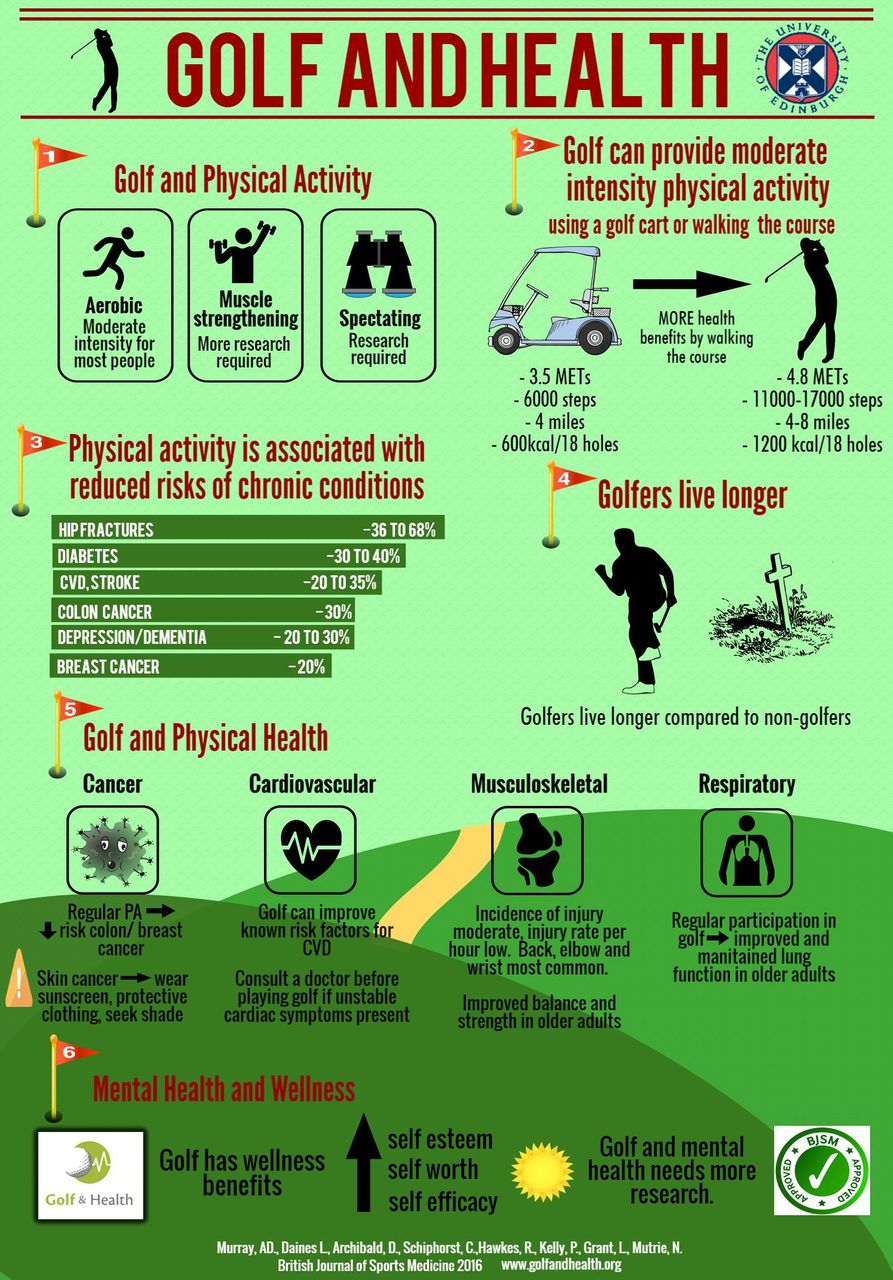Senior Golf: A Healthy Balance of Fun & Exercise
Golf is a fun and challenging sport. But for senior golfers, hitting the links can also lead to a number of healthy outcomes.
Written by Stannah

It’s one of the best feelings in sports: the perfect golf shot. Everything is balanced and in rhythm. The world slows down. Your thoughts and movements are fluid, working together, perfectly in sync. You feel the ball give, and before even lifting your head to track it, you know exactly where it’s going. These are the moments that keep golfers coming back for more. It’s the culmination of practice, concentration and muscle memory. But it’s more than that: it’s the course; it’s the competition; it’s the sunshine; it’s an afternoon spent with friends; and for senior golfers, it’s a moment, however fleeting, to reclaim a bit of their youth.
Like a good fishing story, a well-told golf tale oozes with passion (and perhaps a bit of embellishment). The phrase “ten years younger” echoes throughout, and the thrill of victory is always tempered by the couple of shots you “left out there”. So, why is this game so invigorating? Simply put, golf presents a physical and mental challenge, in an outdoor setting, that can be enjoyed solo or in with a group. The result is a pastime that carries tremendous health benefits, especially for seniors. Let’s take a look at some of the reasons golf is such a great way to exercise the body and mind!

What are the Key Health Benefits of Golf?
Each year at Augusta National Golf Club, The Masters Tournament kicks off with ceremonial tee shots from retired legends of the game. It’s a time-honoured tradition and a great reminder of the important role these men still play as ambassadors for the sport. It’s also a testament to their enduring skills and longevity; at 78 and 82, both Jack Nicklaus and Gary Player can still put on a show! So, what is it about golf that lends itself to older players? Well, first it’s a sport that depends more on skill and experience than raw physical strength. As a low impact form of exercise, it certainly puts less strain on the body than contact sports, like football or hockey. And, unlike these other sports, many golfers actually end up playing their best much later in life. Golfers are also more likely to reach these latter years, thanks to a number of health benefits associated with playing the sport. According to the European Institute of Golf Course Architects, some of those benefits include:
- Heart Health: Like any type of exercise, golf gets your blood pumping and improves heart health. Swinging your clubs, carrying your bag and, especially, walking the course can have all sorts of positive effects, including lowering your risk for developing type 2 diabetes or suffering from a stroke.
- Brain Stimulation: Walking the golf course can also have a positive impact on the brain, as maintaining a consistent blood supply to the brain allows it to function at optimal levels and reduces the risk of dementia and other cognitive diseases. The strategy and mental challenges of the game also provide a solid mental workout that can help keep you sharp.
- Weight Loss: Looking for a way to get your 10,000 steps in? Walking the golf course can take between 11,000 and 17,000 steps – more than enough to burn your daily calories. A study by The Norwegian Golf Federation found that male golfers burn approximately 2,500 kilocalories while walking an 18-hole round of golf, while female golfers burn around 1,500 kCal.
- Reduced Stress/Improved Sleep: Getting out and enjoying the great outdoors is always a solid way to combat stress and depression. There are few places better than a golf course to enjoy some fresh air and exercise. This, in turn, leads to improved sleep patterns. After a day out on the golf course, you’re likely to fall asleep faster, leading to a deeper and more restful sleep. A solid night’s rest has all sorts of positive effects, including better muscle repair and improved mental health.
- Longer Life: A Swedish study that compared 300,000 golfers to non-golfers, found that golfers live longer by an average of five years. The study covered various age groups, genders and socioeconomic demographics. The correlation between golf and longevity persisted, regardless of background.
Additionally, physical activity associated with golf has been linked to better balance and increased muscle strength, which leads to a reduced risk of developing a chronic condition. This chart, from The Golf & Health Project, further illustrates the benefits for senior golfers.

Source: The Golf & Health Project
Can Golf Improve your Mental Health?
As mentioned above, golf can improve your sleep patterns. This leads to more energy, which improves your mood, while reducing stress and anxiety. According to Golf and Health, senior golfers can gain confidence and self-esteem through playing regularly. This uplifting psychological effect, combined with the positive impact of the physical side of golf, can counteract mid to moderate depression.
Additionally, golf provides a great opportunity for seniors to socialize with friends, spend time with family and build lasting connections with others. Since it’s an intergenerational sport enjoyed by people of all ages, golf provides a unique opportunity to interact and make friends with people you might not have known otherwise. So, whether it’s your old school-buddies, your spouse, your grandchildren or a perfect stranger, a round of golf is almost always better with company!
In addition to providing some healthy competition, a weekly round with fellow golfers provides a bit of routine and an opportunity to get out of the house and do something you enjoy. These positive feelings tend to stick around and give you a lift during the rest of the week. So get your group together and get out there!

Tips for Senior Golfers
Driving Range
At this point, you might be thinking, “Ok, how do I get started?” The driving range is usually a good place to begin. You can find them in most towns and they’re a grea t place to take a few swings to see how you like it. You can usually rent clubs or just bring your own. Many driving ranges offer lessons for beginners. There are also great instructional videos online, but taking lessons in-person is a good investment if you’re just starting out. When you’re ready, find a local course and give it a shot.
Watch the Pros
For golfers of any skill level, learning from the pros is essential. Whether you’re observing the subtleties of a particular shot, learning about etiquette and the ins and outs of the game or just enjoying the spectacle, watching professional golf can be a blast! You’ll come to appreciate the skills on display and even pick up a thing or two for your own game. For senior golfers, watching the PGA Champions Tour can be particularly beneficial, as these senior golfers show what it takes to compete at an advanced age.
Helpful Exercises
Stretching and developing a proper warm-up routine are critical for senior golfers. Building up strength, maintaining the proper posture and generally being “loose” will not only improve your game, but will dramatically reduce your risk of injury. The PGA recommends these key exercises for senior golfers. However, before attempting these exercises, we recommend consulting your doctor to ensure you have sufficient mobility.
Relax and Have Fun
It’s easy to get caught up in the moment when your competitive instincts kick in, but it’s important to remember to relax and have fun! After all, that’s the whole reason you started playing in the first place. No one starts off shooting birdies right away and even the pros have bad days. The main thing is to get out there, enjoy the fresh air, get some solid exercise and have a great day out on the golf course!

“Golf is the closest game to the game we call life. You get bad breaks from good shots; you get good breaks from bad shots – but you have to play the ball where it lies.”Bobby Jones
